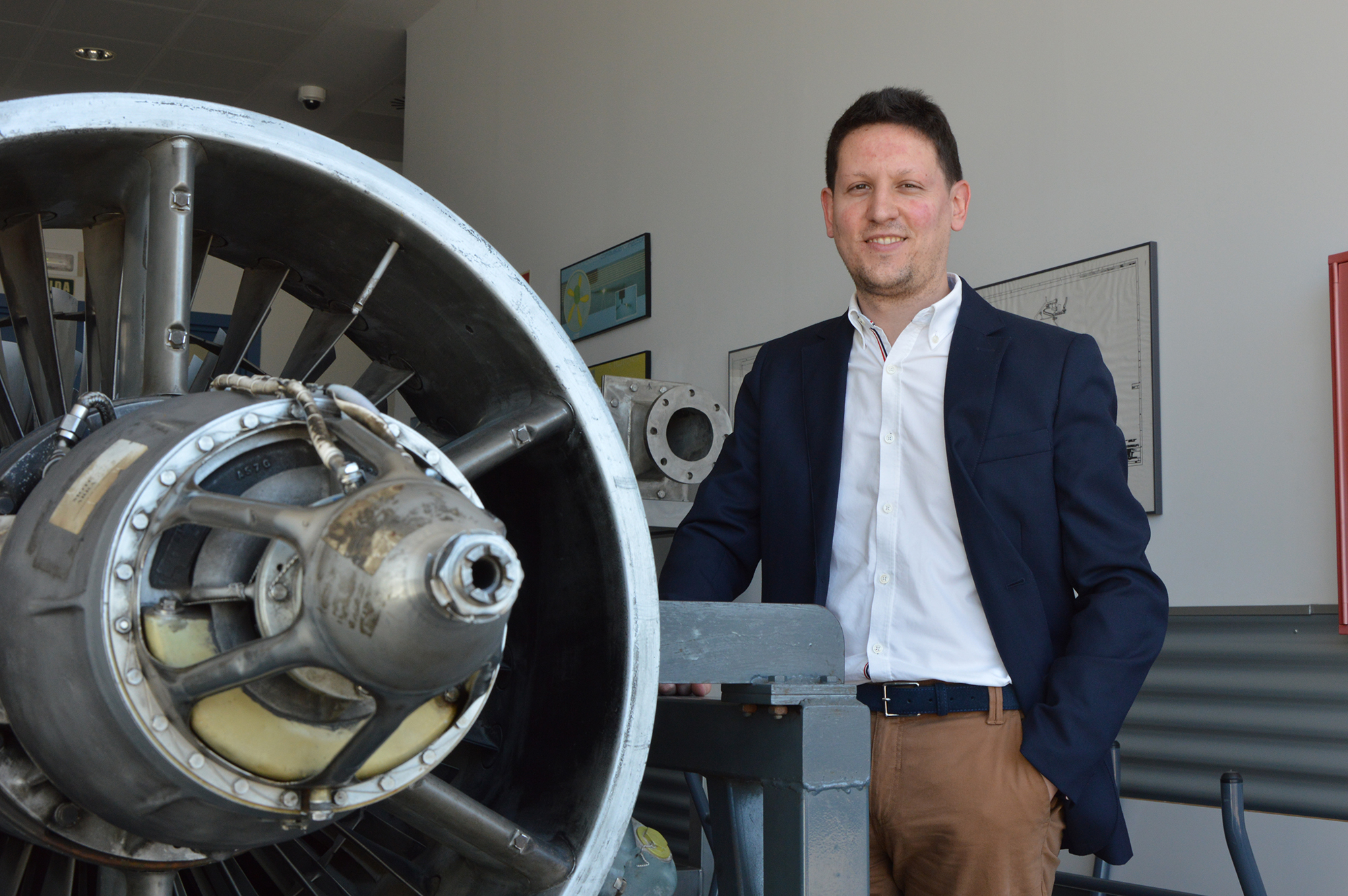
Marcos Carreres is an assistant professor at Universitat Politècnica de València where he conducts his research at CMT-Motores Térmicos (Thermal Engines Institute). He belongs to the Injection & Combustion group and is focused specifically on the the computational and experimental study of non-reactive flows relevant to transportation systems. In this interview he talks about his devotion to aerospace engineering and how his experience working in the airline industry has given him insight into aircraft maintenance.
What is your motivation for pursuing research in this area?
My main motivation is to help mitigate the negative impact that human activities generate in our environment. Despite the logical quest for alternative energy sources, I believe the industry will still rely on combustion systems for some time. While a lot of effort is taken on designing and implementing new combustion strategies, moving a little bit upstream into the thermal machines can also address some of their issues from the very beginning. Efficient atomisation sets the foundations for proper combustion through a smart mixing process, thus reducing fuel consumption and emissions regardless of the combustion concept.
In any case, thermal engines are not the only systems that benefit from the study of atomisation and sprays. Mastering the spray development contributes to a varied range of applications. To name a few, it can allow us to reduce aerosol emissions in the agricultural field, minimising the use of products in industrial painting processes such as in automotive, help improve our firefighting techniques, etc. This all brings us back to my original motivation.
What would you have done if you were not a researcher?
I find it difficult to picture myself out of research activities, but I would have liked to pursue a career where I could also feel a positive impact to society.
I have always felt devoted to aerospace engineering, but along my career I understood that efficient processes are as important as product development. Right after graduating and before starting my PhD, I briefly worked for the airline industry. There, I could see the importance of the aircraft maintenance discipline. This is a heavily constrained multi-objective problem that mixes operational issues, stock management, human factors, shop availability and many others to ensure maximum aircraft reliability and safety at a minimum cost. I believe the new data-driven techniques will play a key role into this discipline and will also end up saving a lot of pollutant emissions in the long run, so it could also have been a nice career choice to mitigate our impact into the environment.
Have you encountered any challenges in pursuing your research career?
Of course! Trying to go beyond the state-of-the-art is full of challenges. I am sure every researcher has felt the unease of stepping unknown ground for the first time, not fully knowing how to properly calibrate a test facility for a novel measurement, how to set up a simulation with a new strategy, etc. Research is a continuous learning process where each success is often the result of a set of unexpected results, so that is definitely challenging.
What do you do within the ESTiMatE project?
The main objective of ESTiMatE is to understand the soot formation mechanisms and develop a soot prediction model. As stated before, fuel atomisation plays a primary role in the generation of pollutant emissions. Hence, understanding the breakup mechanism and air-fuel mixture in aero engines is a first step to develop this model.
Experimental techniques in the near-field, where primary breakup takes place, cannot provide a lot of detail into the phenomenon. Hence, our role in the project is to conduct high-fidelity simulations of primary breakup that allow to derive a phenomenological model that is specific for airblast atomisers currently equipped in aero engines. This model can then be coupled to the specific models derived by the other partners of the Consortium, attaining the pursued soot prediction capabilities.
How do you like it so far?
Working in the frame of ESTiMatE sharing a common goal with recognised international partners is truly exciting. Even though the interaction with our colleagues is currently limited, the cooperation persists and I enjoy the technical discussions and seeing how the individual progress is bringing everyone closer to our objectives.
What do you hope to achieve in your career in the long run?
Being a faculty member, my career involves both teaching and conducting research. It is not always easy to align these two activities, but my hope is to get to see the effects of each of them onto the other one and onto the real world. This would maximise the impact of my tasks onto society. I will feel fulfilled if the knowledge extracted from our research can be transferred not only to the industry but also to the students, to drive their passions.
